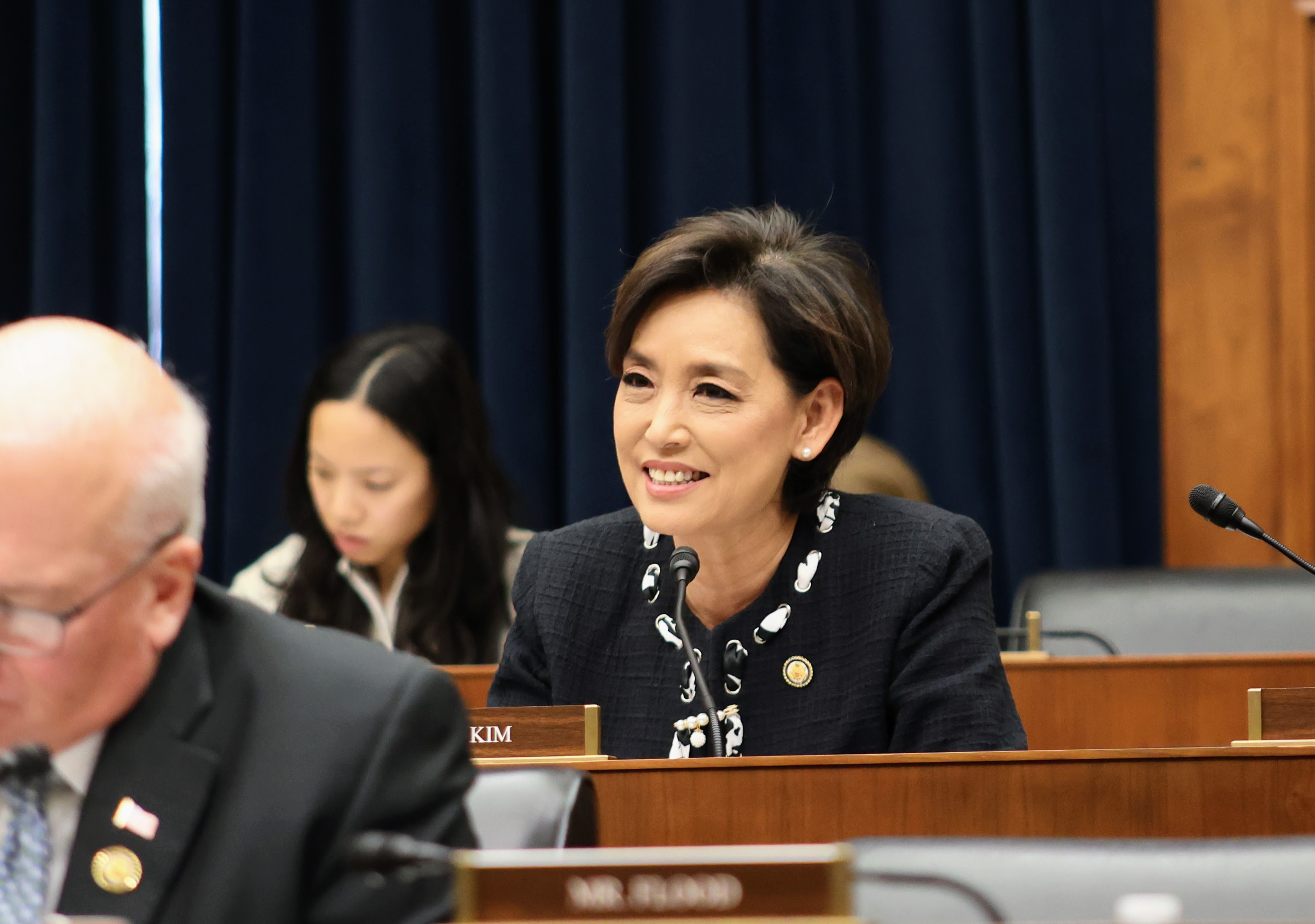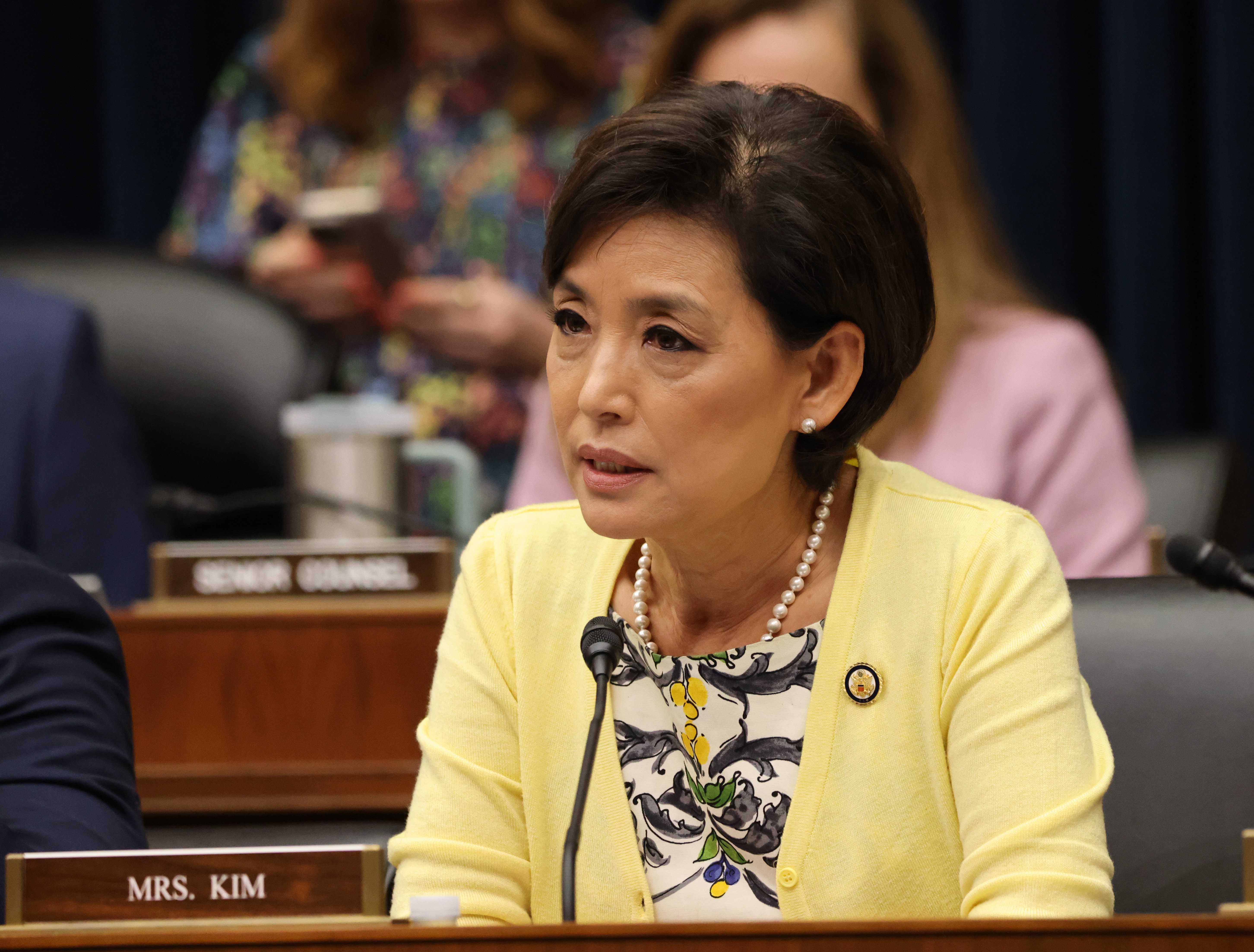American Veterans with limited English skills soon will have greater access to information about federal benefits owed to them, after President Joe Biden this week signed into law a bipartisan bill championed by Rep. Young Kim, R-La Habra.
The Veterans and Family Information Act, or H.R. 2093, directs the Department of Veterans Affairs to translate all of its factsheets into Spanish, Tagalog and 10 other common languages. Those translations also must be posted on the VA’s website.
Kim said she hopes the new law means veterans and their caretakers with limited English proficiency won’t have to keep relying on others for help to understand and access VA benefits that they’ve earned.
“My district is home to more than 27,000 veterans from diverse backgrounds who faithfully served in the United States military, including my own sister, brother-in-law, and my husband, too,” Kim, whose 39th District includes portions of Orange, Los Angeles and San Bernardino counties, told Congress while speaking in support of the bill.
“With an increasingly diverse population of veterans across the country, and with United States veterans residing in the Philippines and in Puerto Rico, this bill ensures that our veterans and their caretakers whose first languages are not English, are aware of, and understand, the VA’s benefits.”
Former CA-39 Rep. Gil Cisneros, D-Yorba Linda, introduced a similar bill last session that required the VA to translate materials into Spanish and Tagalong. His H.R. 2943 passed the House but stalled in the then-GOP controlled Senate.
Rep. Hakeem Jeffries, D-New York, picked up Cisneros’ bill in March with Kim as lead cosponsor. They expanded it to include the 10 most commonly spoken languages in the U.S. other than English.
The bill, which Biden signed it into law on Nov. 22, asks the VA to report back to Congress on deployment of this plan within six months.
Nancy Montgomery, a nurse who oversees Irvine Valley College’s Veteran Resource Center, said she hopes this bill raises awareness about both the lack of language services and the lack of data available on the diverse needs of both active duty and veteran service members.
It’s not clear how many of our country’s 17 million veterans have limited English proficiency. Neither the Census Bureau or the VA currently tracks that data. The closest estimates come from a 2019 analysis by the Migration Policy Institute, which reported some 13%, or 2.4 million veterans, are either foreign-born or children of immigrants. Within that population, roughly 20%, or nearly 500,000 people, acknowledge limited English skills.
Still, while touring VA facilities in West Los Angeles, Montgomery said she noticed very few interpretation services or diverse language speakers available on staff, including for former foreign interpreters who qualify for VA benefits.
During a House hearing on the previous iteration of this bill, Rep. Mark Takano, a Democrat from Riverside who chairs the House Veterans Affairs Committee, told Congress that he heard about the problem firsthand during a 2019 trip to Puerto Rico.
“I met with veterans who told me they are not receiving information on VA programs, and when they do receive information, it is in English, not Spanish. The one veteran who received a brochure on the MISSION Act in Spanish said it was incomplete compared to the English materials.
“This disparity should not exist,” Takano said. “Veterans, regardless of the language they speak, or where they live, should be able to understand how to access their benefits easily.”
Advocates say this could be one factor contributing to the fact that many veterans — who face disproportionate rates of everything from certain forms of cancer to suicide to hearing loss — aren’t accessing benefits available to them.
Combat veterans deployed after 1998 can access healthcare benefits through the VA for five years after they’ve been discharged. But federal data shows less than two-thirds of the nearly 2 million veterans who’d become eligible for healthcare benefits since 2002 had enrolled to receive them by 2016 because they either didn’t know they could or didn’t know how to go about signing up.
Though Irvine Valley’s Montgomery applauded Kim’s bill, she said lawmakers and the VA still need to find better ways to connect veterans with the services available to them. She supports, for example, automatically enrolling veterans for VA medical benefits when they’re discharged from the service — an idea that’s never gotten off the ground in Congress.
“They can publish and put out all of this wonderful information in 50 different languages,” Montgomery said. “The problem is the information still will not get to the veterans that are out there until they do the outreach.”




